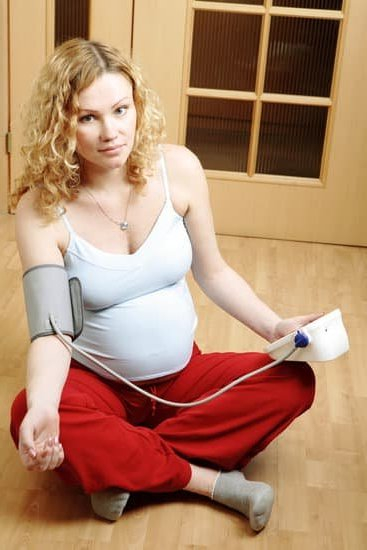Are you experiencing very early signs of pregnancy 2 week after conception? It’s common for women to start noticing changes in their bodies just a couple of weeks after conceiving. Understanding what to expect at this early stage can help prepare you for the journey ahead. From physical symptoms to emotional changes, the first 2 weeks of pregnancy can be filled with various signs that indicate the beginning of a new life.
During the first two weeks of pregnancy, the body undergoes several changes as it prepares for implantation and fetal development. These changes are often subtle and may go unnoticed by some women. However, being aware of these very early signs can help provide insight into your potential pregnancy and offer an opportunity to begin proper prenatal care.
While many common symptoms of pregnancy may not appear until later on, there are still uncommon signs to watch out for at 2 weeks pregnant. These less typical symptoms might include mild cramping, spotting, breast tenderness, or mood swings. It’s important to pay attention to these signals and consult with a healthcare professional if you have any concerns about your early pregnancy experience.
Changes in the Body During Early Pregnancy
During the first two weeks of pregnancy, changes in a woman’s body may not be as noticeable as during the later stages, but there are still some important things happening. One of the most significant changes is the release of the hormone human chorionic gonadotropin (hCG) after a fertilized egg implants in the uterus. This hormone is what pregnancy tests detect to confirm that conception has occurred.
Another key change is an increase in progesterone levels, which helps to thicken the uterine lining to prepare for a potential pregnancy. This can sometimes cause symptoms such as breast tenderness and mild cramping, which are often mistaken for premenstrual discomfort. At this stage, some women may also experience light spotting or implantation bleeding, which occurs when the fertilized egg attaches to the lining of the uterus.
Women at 2 weeks pregnant may also begin to feel more fatigued than usual due to increased levels of progesterone and other processes occurring in early pregnancy. However, some women may not notice any physical changes until later in their first trimester.
It’s essential for women who suspect they may be pregnant or who are actively trying to conceive to pay attention to their bodies and consider taking a home pregnancy test if they have missed a period or are experiencing other very early signs of pregnancy 2 week.
| Body Changes | Significance |
|---|---|
| Increase in hCG hormone | Confirmed pregnancy |
| Rise in progesterone levels | Preparation for potential pregnancy |
| Implantation bleeding | Fertilized egg attachment |
Uncommon Symptoms to Watch Out for at 2 Weeks Pregnant
At 2 weeks pregnant, many women may not yet be aware that they are expecting. This is because the first two weeks of pregnancy are typically calculated based on the start date of the woman’s last menstrual period, and ovulation and conception usually occur around two weeks after this. However, some very early signs of pregnancy at 2 weeks may begin to manifest.
One uncommon symptom to watch out for at 2 weeks pregnant is implantation bleeding or spotting. This occurs when the fertilized egg attaches itself to the lining of the uterus. It may present as light bleeding that is often mistaken for a very light period. Some women also report experiencing mild abdominal cramping along with implantation bleeding.
Another early sign of pregnancy at 2 weeks is an increase in cervical mucus. A few days after conception, some women notice an increase in cervical mucus that appears clear and slippery. This change in cervical mucus is due to hormonal shifts and can be one of the earliest indicators of pregnancy.
It’s important to note that these very early signs of pregnancy at 2 weeks are not experienced by all women, and some may not notice any unusual symptoms during this time. Additionally, it’s crucial to confirm a suspected pregnancy with a home pregnancy test or a visit to a healthcare provider for accurate testing and confirmation.
| Pregnancy Symptom | Description |
|---|---|
| Implantation bleeding | Light bleeding or spotting due to egg implanting in uterine wall |
| Cervical mucus changes | Increase in clear and slippery mucus due to hormonal shifts |
The Role of Hormones in the Early Stages of Pregnancy
During the early stages of pregnancy, around the 2-week mark, hormonal changes in a woman’s body play a crucial role in preparing for pregnancy. These hormones work together to create an optimal environment for the fertilized egg to implant and for the embryo to develop. Here are some of the key hormones involved in early pregnancy:
- Human Chorionic Gonadotropin (hCG): This hormone is produced by cells that form the placenta. It can be detected in a woman’s urine and blood, and is often used as a marker in home pregnancy tests. hCG levels rise rapidly in the first trimester and are responsible for some common pregnancy symptoms such as nausea and vomiting.
- Progesterone: This hormone is essential for maintaining a healthy pregnancy. It helps to thicken the uterine lining so that it can support the growing fetus. Progesterone also prevents contractions of the uterus that could lead to preterm labor.
- Estrogen: Another important hormone during early pregnancy is estrogen, which helps stimulate the growth of the uterus and increases blood flow to the placenta.
These hormones work together to create an environment that supports the developing embryo and prepares the mother’s body for pregnancy.
It should be noted that every woman’s experience with hormonal changes during early pregnancy can vary, and some may not feel any significant symptoms at this very early stage. However, understanding these hormonal changes can help women recognize potential signs of pregnancy at 2 weeks and seek appropriate prenatal care.
Emotional and Mental Changes in the First 2 Weeks of Pregnancy
During the first 2 weeks of pregnancy, women may experience a range of emotional and mental changes as their bodies adjust to the new developments. The hormonal shifts that occur during early pregnancy can impact mood, energy levels, and overall mental well-being. It is important for women to be aware of these changes and seek support if needed.
Heightened Emotions
At 2 weeks pregnant, many women may notice a significant increase in emotional sensitivity. This can manifest as mood swings, irritability, or feelings of being overwhelmed. The fluctuating hormones in the body can contribute to these emotional ups and downs, making it important for women to practice self-care and seek out a strong support system during this time.
Fatigue and Anxiety
The early stages of pregnancy can also bring about increased fatigue and feelings of anxiety. Women may find themselves more tired than usual, even with adequate rest. Additionally, the anticipation and uncertainty surrounding a possible pregnancy can lead to heightened feelings of worry or nervousness. It is important for women to prioritize their mental health during this time by getting enough rest and seeking professional support if anxiety becomes overwhelming.
Embracing Hopeful Feelings
While it is common for women to experience a wide range of emotions during the first 2 weeks of pregnancy, many also report feeling hopeful and excited about the potential new life growing within them. This sense of optimism can provide much-needed emotional support as women navigate the physical changes occurring in their bodies. It is important for expectant mothers to acknowledge these positive emotions and embrace the joy that comes with the possibility of pregnancy.
Nausea and Food Aversions in the Early Stages of Pregnancy
During the first two weeks of pregnancy, a woman may experience some early signs that could indicate she is pregnant. These very early signs of pregnancy 2 week mark include changes in the body such as nausea and food aversions. These symptoms are often attributed to the rapid increase in hormones such as estrogen and progesterone, which can affect a woman’s sense of smell and taste.
Some common signs of nausea at 2 weeks pregnant include feeling queasy or experiencing an upset stomach, especially in the morning. Food aversions may also start to develop, causing a pregnant woman to have an aversion to certain smells or tastes that she previously enjoyed. This can make it challenging for women to maintain a balanced diet during this time.
Here are some uncommon symptoms related to nausea and food aversions that women may experience at 2 weeks pregnant:
- Sensitivity to certain smells or odors
- Cravings for specific types of foods, such as salty or sweet
- Loss of appetite or feeling full quickly
It is important for women who suspect they may be pregnant to pay attention to these very early signs so they can seek medical advice and begin prenatal care. Nausea and food aversions are typical symptoms experienced by many women during the early stages of pregnancy and can vary greatly from person to person.
The Importance of Prenatal Care and Early Pregnancy Testing
Seeking Prenatal Care
It is essential to start seeking prenatal care as soon as you suspect you may be pregnant. Prenatal care plays a crucial role in ensuring the health and safety of both the mother and the developing baby. This involves scheduling regular check-ups with a healthcare provider, who will monitor the progress of the pregnancy, provide guidance on nutrition and exercise, and offer support for any concerns or questions that may arise.
Importance of Early Pregnancy Testing
Early pregnancy testing is key in confirming a suspected pregnancy. At around 2 weeks pregnant, a woman may experience very early signs of pregnancy such as light spotting or implantation bleeding, breast tenderness, and fatigue. However, it can be challenging to determine if these symptoms are indicative of pregnancy without a positive pregnancy test result.
Home pregnancy tests are readily available at most drugstores and can provide accurate results as early as the first day of a missed period. A positive test result should prompt a visit to a healthcare provider for further confirmation and initiation of prenatal care.
Educating Yourself on Prenatal Health
In addition to seeking professional prenatal care, it is important for expectant mothers to educate themselves about prenatal health. This includes learning about the various stages of pregnancy, understanding what to expect during each trimester, and being aware of any potential risks or complications that may arise. By staying informed and proactive about prenatal health, women can better prepare themselves for the journey ahead and ensure optimal outcomes for both themselves and their babies.
Conclusion
In conclusion, the first 2 weeks of pregnancy can be an exciting and overwhelming time for women, as they begin to navigate the early signs and symptoms of pregnancy. From physical changes in the body to emotional and mental shifts, it is important for women to be aware of what to expect during this crucial time.
While some very early signs of pregnancy at 2 weeks may be subtle, such as slight fatigue or increased urination, others may be more noticeable, such as breast tenderness or light spotting. It is essential for women to listen to their bodies and seek prenatal care as soon as they suspect they may be pregnant.
Taking care of one’s emotional and mental well-being during the first 2 weeks of pregnancy is just as important as tending to physical symptoms. The influx of hormones can lead to mood swings and heightened emotions, making it crucial for expectant mothers to prioritize self-care during this time. Finding support from loved ones and seeking professional help if necessary can make a significant difference in navigating the rollercoaster of emotions that often accompany early pregnancy.
Moreover, understanding the role of hormones in the early stages of pregnancy plays a vital role in managing symptoms and seeking appropriate medical attention when needed. By being informed about what is happening within their bodies, women can better prepare themselves for the changes that lie ahead and ensure a healthy start for both themselves and their growing baby.
It is also highly recommended for women to undergo early pregnancy testing with the guidance of a healthcare professional in order to confirm their suspicions and begin receiving proper prenatal care early on. By taking proactive steps towards their health and well-being, women can set themselves up for a successful and healthy pregnancy journey from the very beginning.
Frequently Asked Questions
Can You Feel Pregnant at 2 Weeks?
It is highly unlikely to physically feel pregnant at just 2 weeks. At this early stage, the embryo has just implanted in the uterus, and most women do not experience any noticeable symptoms.
Can You Detect Pregnancy as Early as 2 Weeks?
Pregnancy can be detected as early as two weeks after conception using sensitive pregnancy tests that measure the levels of human chorionic gonadotropin (hCG) in the body. However, for most women, a pregnancy test may not show positive results until they miss their period.
Can You Tell if You Are 1 or 2 Weeks Pregnant?
It can be difficult to determine if you are 1 or 2 weeks pregnant because pregnancy is typically measured from the first day of your last menstrual period, even though conception usually occurs around two weeks after that. This means that during those two weeks, you are technically already considered pregnant, even though conception has yet to occur.

Welcome to my fertility blog. This is a space where I will be sharing my experiences as I navigate through the world of fertility treatments, as well as provide information and resources about fertility and pregnancy.





